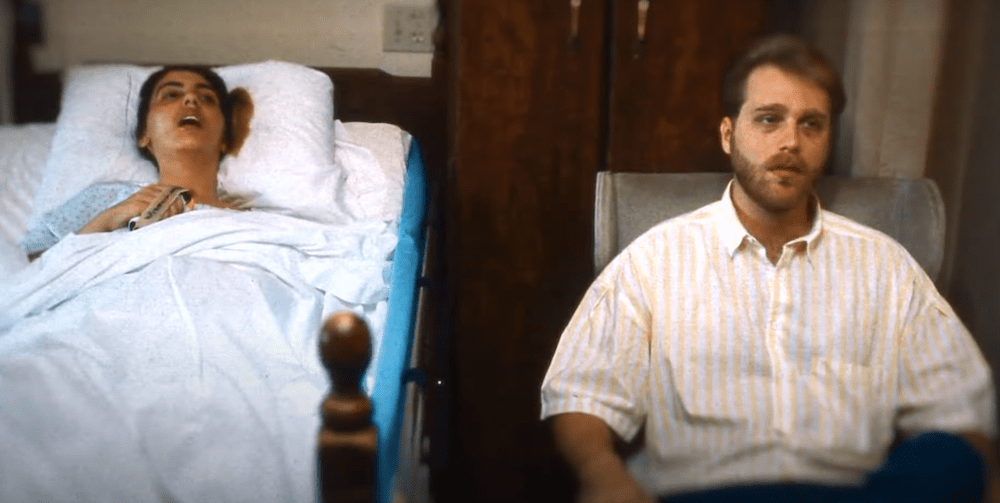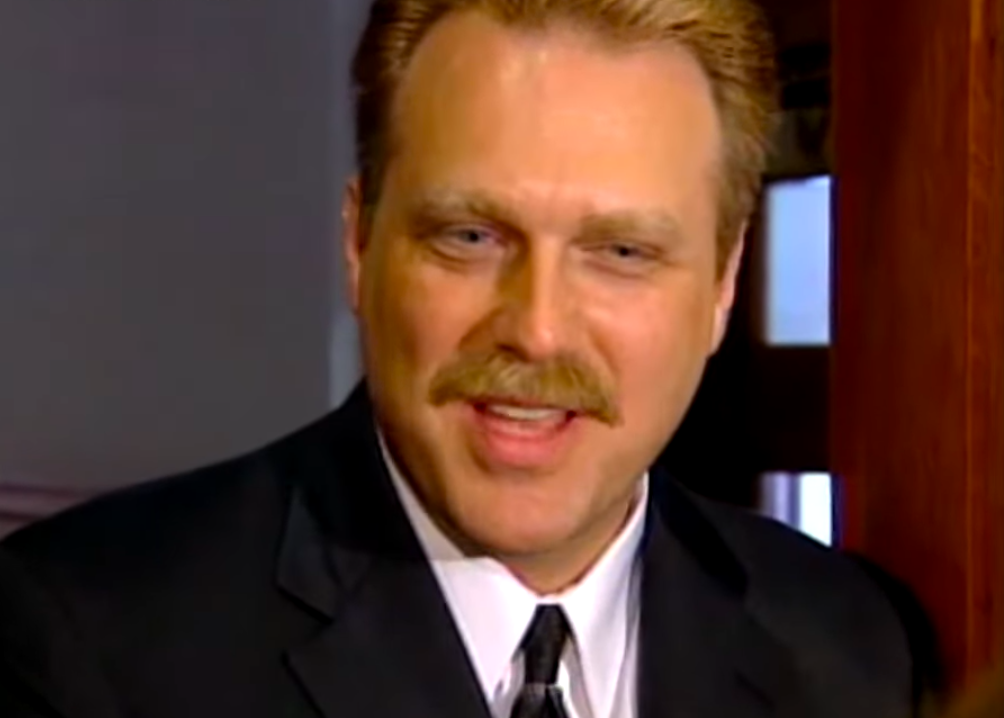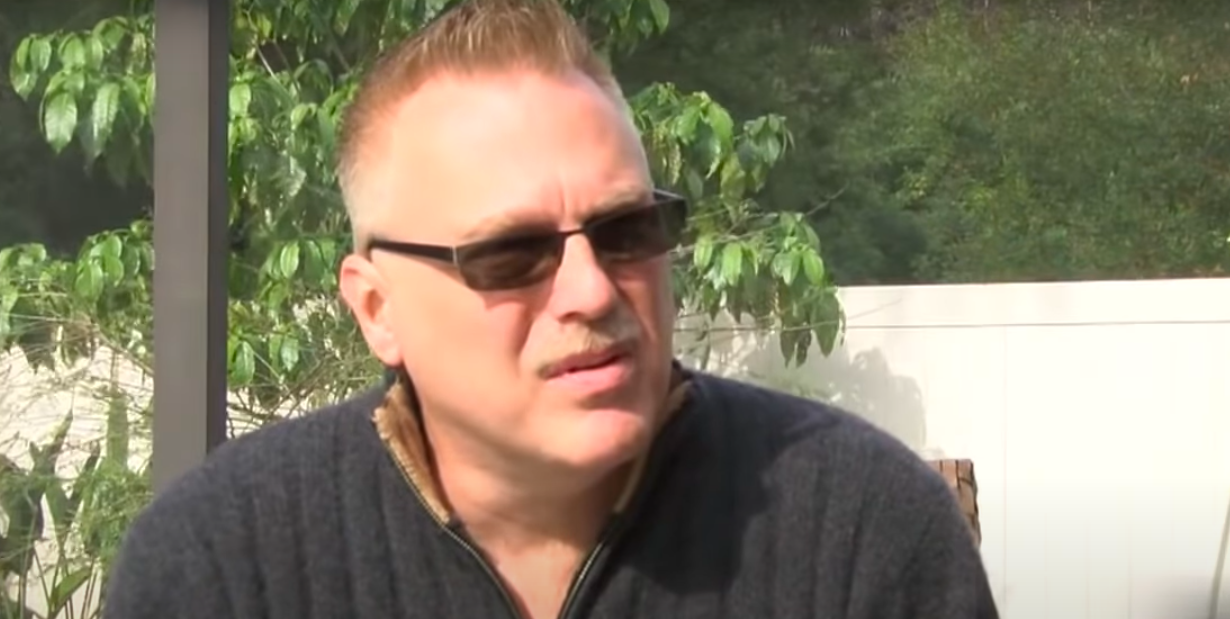Terri Schiavo Husband: The Untold Story Behind One Of The Most Controversial Cases
When it comes to discussing the Terri Schiavo case, there's no denying the emotional weight and public attention it drew. Terri Schiavo husband, Michael Schiavo, became a central figure in one of the most debated legal and ethical battles in modern history. This isn’t just a story—it’s a deep dive into life, love, tragedy, and the complexities of human rights. If you’ve ever wondered about the man behind the headlines, this is where we start unraveling the truth.
Terri Schiavo husband, Michael Schiavo, wasn’t just any spouse. He was thrust into the spotlight after his wife, Terri, suffered a cardiac arrest in 1990, leaving her in a persistent vegetative state. For over a decade, Michael fought tirelessly to honor what he believed were Terri’s wishes. But here’s the kicker: not everyone agreed with him, and that disagreement sparked a nationwide debate.
This article aims to shed light on Michael Schiavo’s journey, the decisions he made, and the challenges he faced. Whether you’re familiar with the case or just curious about the man at the center of it all, you’re about to discover a story that’s as compelling as it is controversial. So buckle up, because we’re diving headfirst into the life and legacy of Terri Schiavo’s husband.
Read also:Unveiling The Rise Of Alanacho Erome A Journey Beyond The Spotlight
Table of Contents
- Biography of Terri Schiavo Husband
- Early Life and Background
- The Tragic Incident That Changed Everything
- The Legal Battle: A Nation Divided
- Public Opinion: What Did People Really Think?
- Ethical Dilemmas Surrounding Terri Schiavo Husband
- Supporters and Critics: Who Was on His Side?
- Life After Terri: Where Did Michael Go?
- Impact on Healthcare and End-of-Life Decisions
- The Lasting Legacy of Terri Schiavo Husband
Biography of Terri Schiavo Husband
Before we dive into the complexities of the case, let’s take a step back and get to know Michael Schiavo. Born in 1959, Michael grew up in Florida, where he met Terri Schiavo. The couple married in 1993, and life seemed to be going well for them. But fate had other plans. Below is a quick rundown of Michael’s life and career:
Basic Information
| Full Name | Michael Schiavo |
|---|---|
| Birth Year | 1959 |
| Spouse | Terri Schiavo |
| Residence | Florida, USA |
| Occupation | Small Business Owner |
Michael was more than just a husband; he was a man caught in the crossfire of medical ethics, family disputes, and public scrutiny. His life took a dramatic turn when Terri suffered a cardiac arrest in 1990, leaving her in a persistent vegetative state.
Early Life and Background
Michael Schiavo’s early life was relatively unremarkable, at least until he met Terri. Growing up in a tight-knit community, Michael was known for his kindness and sense of responsibility. He worked as a small business owner before marrying Terri, and their life together was filled with dreams and aspirations.
But life has a way of throwing curveballs, and in 1990, Michael’s world changed forever. Terri suffered a cardiac arrest, leaving her brain-dead. The diagnosis was grim, and the journey ahead would test Michael’s strength and resolve like never before.
The Tragic Incident That Changed Everything
In 1990, Terri Schiavo collapsed at home, suffering a severe lack of oxygen to her brain. The medical team worked tirelessly to save her, but the damage was done. Terri was left in a persistent vegetative state, unable to communicate or respond to her surroundings.
Michael, now Terri Schiavo husband, was faced with an unimaginable decision: What would Terri want? This question became the focal point of a legal and ethical battle that would last over a decade. Doctors, lawyers, and even politicians weighed in, but ultimately, it was Michael’s responsibility to make the final call.
Read also:Brynn Woods Leaks The Inside Story You Need To Know
The Legal Battle: A Nation Divided
The legal battle surrounding Terri Schiavo husband, Michael Schiavo, became one of the most contentious cases in U.S. history. At the heart of the dispute was whether Terri would have wanted to continue living in her condition. Michael argued that Terri had expressed her wishes to him, stating she wouldn’t want to live in such a state.
However, Terri’s parents, Bob and Mary Schindler, disagreed. They believed their daughter was still alive and deserved every chance to recover. The case escalated, with lawmakers even stepping in to pass emergency legislation aimed at keeping Terri alive.
Key Legal Highlights
- Michael Schiavo petitioned to have Terri’s feeding tube removed, citing her wishes.
- Terri’s parents fought back, arguing that Michael had ulterior motives.
- State and federal courts became involved, with rulings bouncing back and forth.
- In 2005, after years of legal wrangling, the courts finally sided with Michael.
The legal battle wasn’t just about Terri; it was about the broader implications of end-of-life decisions and the rights of individuals and their families.
Public Opinion: What Did People Really Think?
Public opinion on Terri Schiavo husband, Michael Schiavo, was deeply divided. Some saw him as a compassionate man honoring his wife’s wishes, while others accused him of selfishness and greed. The media played a significant role in shaping perceptions, with news outlets often taking sides.
A Gallup poll conducted during the height of the controversy revealed that opinions were split almost evenly. Religious groups and pro-life advocates largely supported Terri’s parents, while those advocating for patient autonomy backed Michael.
Ethical Dilemmas Surrounding Terri Schiavo Husband
At its core, the Terri Schiavo case was an ethical dilemma. Was it right to remove life support from someone who couldn’t communicate their wishes? And who should make that decision—the spouse or the parents?
Michael Schiavo’s stance was clear: Terri wouldn’t have wanted to live in a vegetative state. But proving that became a challenge, especially when Terri’s parents claimed she had never explicitly stated her wishes.
Key Ethical Questions
- Should family members have the final say in end-of-life decisions?
- How reliable are verbal expressions of wishes compared to written directives?
- What role should the government play in private family matters?
These questions continue to resonate in healthcare debates today, making the Terri Schiavo case a landmark moment in medical ethics.
Supporters and Critics: Who Was on His Side?
Michael Schiavo had both staunch supporters and vocal critics. Those who backed him praised his courage in standing by what he believed were Terri’s wishes. On the other side, critics accused him of being motivated by financial gain, pointing to the settlement money from Terri’s medical malpractice lawsuit.
High-profile figures, including politicians and religious leaders, weighed in on the case. Some, like former President George W. Bush, intervened to try and keep Terri alive, while others supported Michael’s decision.
Life After Terri: Where Did Michael Go?
After Terri’s death in 2005, Michael Schiavo largely stepped out of the public eye. He remarried and focused on raising his children. However, the legacy of the case continued to follow him, with media outlets occasionally revisiting the story.
Michael has spoken publicly about his experience, emphasizing the importance of advance directives and clear communication about end-of-life wishes. His journey serves as a reminder of the complexities involved in such decisions.
Impact on Healthcare and End-of-Life Decisions
The Terri Schiavo case had a profound impact on healthcare policies and practices. It highlighted the need for clearer guidelines on end-of-life decisions and the importance of advance directives. Many states have since updated their laws to reflect these lessons.
Michael Schiavo’s role in the case underscored the challenges faced by spouses and family members when making such decisions. It also sparked a national conversation about the role of medical ethics in modern healthcare.
The Lasting Legacy of Terri Schiavo Husband
As we look back on the Terri Schiavo case, one thing is clear: Michael Schiavo’s legacy is complex. He was a man who faced unimaginable challenges and made difficult decisions. Whether you agree with his choices or not, there’s no denying the impact he had on the conversation around end-of-life care.
So, what can we learn from this story? For starters, it’s crucial to have open and honest discussions about our wishes regarding medical care. It’s also a reminder of the importance of compassion, empathy, and respect in such situations.
Final Thoughts
Terri Schiavo husband, Michael Schiavo, wasn’t just a figurehead in a legal battle; he was a husband, a father, and a man trying to do what he believed was right. His story continues to resonate, offering valuable insights into the complexities of life, love, and loss.
So, what’s next? If you found this article helpful, share it with others who might benefit from the insights. And if you have thoughts or questions, leave a comment below. Let’s keep the conversation going!
Article Recommendations


